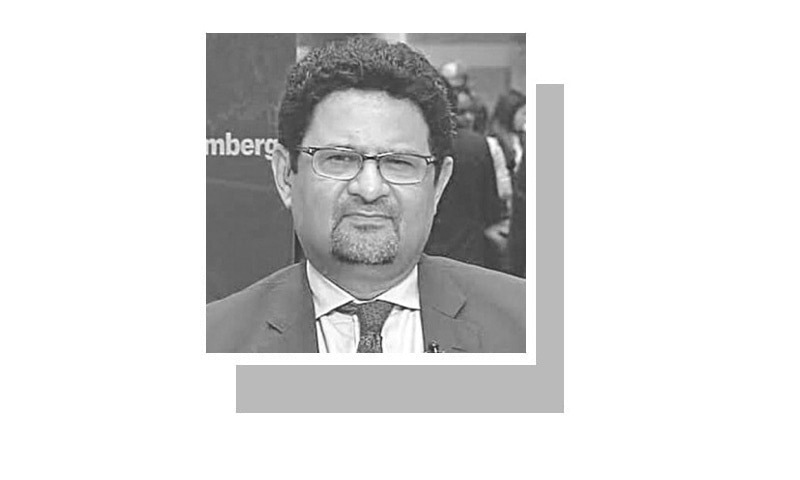Failure of governance

INDIA, a large, imperfect democracy with its many ethnolinguistic and religious groups, separatist forces, occupied territories, etc, is certainly not easier to govern than Pakistan. Up until the 1980s, Pakistan was ahead of India in most economic indicators. Then, in the early 1990s, India dismantled its licence raj and shot past Pakistan.
Today, its annual foreign direct investment is 40 times more than that of Pakistan. Its central bank reserves are over $580 billion; ours are $8bn. It is now well ahead of Pakistan in most human development indicators.
Bangladesh, with a land mass the size of Sindh, half of which is underwater, is a resource-poor nation under a corrupt, authoritarian government. At the time of its separation, East Pakistan’s income per head was half that of West Pakistan. Today, it is ahead of Pakistan in income, exports, education, population control, life expectancy — in fact in almost all economic and social indicators.
Pakistan’s per capita income is below every country in South Asia except Nepal, and below even the average of the countries in sub-Saharan Africa. In human development indicators such as education, infant mortality, etc, we do even worse.
We often have a debate in Pakistan about whether we should have presidential or parliamentary democracy, or even a military dictatorship. Other countries have progressed under all three. We have done badly under all. The problem isn’t the type of government we have.
The problem is that governance in Pakistan is just ineffective: in 75 years, our governments haven’t been able to deliver economic growth, security of life or property, education or health, or even clean drinking water. The hard truth is that our governments haven’t been able to solve any major problems facing Pakistan.
All countries have problems but successful nations resolve them.
All countries have problems but successful nations resolve them. Our governments only put off resolving problems and, in the process, exacerbate them. From population planning to illiteracy to extremism to budget and trade deficits to local autonomy to privatisation to growth to income disparity — our governments have been unable to fix any issue. We can’t even resolve the simple issue of moonsighting!
Take, for instance, the circular debt. This arose during Gen Musharraf’s regime and was around Rs25bn. It grew to Rs500bn under PPP, Rs1,100bn under the PMLN and Rs2,500bn under the PTI. No government has been able to fix the issue, as none has had the time, will or competence required to resolve it. As a result, the issue has become more intractable over time.
However, as most people working in the power sector know, there cannot be any resolution of the circular debt or a reduction in power theft and distribution losses until we have intelligent privatisation. Yet no government has had the courage to move towards that. None.
Whether this ineffectiveness of our governments is the result of political witch-hunts, including in the name of accountability; an outdated system of governance; the occupation of political space by ‘non-political’ actors; judicial interference or political and bureaucratic incompetence can and should be debated. My concern here is more prosaic.
Every country, including desperately poor nations, has moneyed elites, and they aren’t interested in economic growth. Their preoccupation is with keeping a large share of the economic pie for themselves. It is the poor and the middle classes that benefit from growth.
When a country rapidly increases its income, it is the vast majority of the people who benefit. When Japan, Korea and China quadrupled their incomes in a couple of decades, it was the poor who transitioned to the middle class. Of course, the rich got richer, but it is the vast working class that got the most benefits. But no country can grow without effective governance and savvy economic policy, and in this we have always failed.
Take education. Our various governments spend over Rs2,000bn on education annually. But half of all school-age children aren’t even in school, and of those who matriculate from government schools, most can’t solve a simple sum involving percentages, or write a decent paragraph. The issue here is not lack of resources but of will. Without this resolve, the money we are spending on education is being wasted.
Pakistan has one of the fastest population growth rates globally and we add about 5.5 million people every year; more than the population of Rawalpindi and Faisalabad combined. Yet no government, federal or provincial, has been able or willing to do anything about it. Population control doesn’t require a lot of money. It only requires resolve and competence. But this has been lacking.
At the time of separation, East Pakistan’s population was 17 per cent more than West Pakistan’s. Today, Bangladesh’s population is 22pc less than Pakistan’s. It is Bangladesh’s population control that drives the difference between the two countries’ economic performance. Moreover, an average Bangladeshi has three more years of schooling than her Pakistani counterpart, leading to Bangladesh having a higher participation of women in the labour force and its textile exports growing on the shoulders of women workers.
Consider security in Pakistan. Ours is a crime-ridden society where no one, especially women, feels safe. Foreign airlines avoid coming to Pakistan because they don’t want their crews staying here overnight, particularly in Karachi. Foreign buyers don’t like visiting Pakistan, and foreign firms neither invest here in factories nor open buying houses.
This obviously hurts our exports. We get no tourists coming here either. How can a country prosper where no foreigner feels safe? We have experienced extremism, terrorism and crime since the 1990s, and are ‘used to’ living with danger and an ineffective police and security apparatus.
Since Pakistan loses thousands of billions due to lack of security, the resolution should have been of utmost importance. But it requires competence and single-minded determination, and these have been lacking in our governments.
What do Pakistanis think of our governments? In a PIDE survey, 40pc Pakistanis want to leave Pakistan. Look at how Pakistan is faring on various human development indices, and you cannot but conclude that Pakistan is one of the worst-governed countries in the world. It’s time we wake up to this reality.
The writer is a former finance minister.
Published in Dawn, November 19th, 2022















































